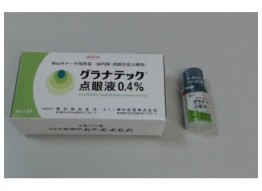Zafatek 100 mg X 20 tablets - Anti-diabetes - for 20 weeks!
What are Zafatek 100 mg tablets for diabetes?
Zafatek tablets containing trelagliptin succinate are pharmaceutical agents used in the management of diabetes mellitus. The mechanism of action of these tablets revolves around their ability to improve glycemic control in individuals with type 2 diabetes through the inhibition of dipeptidyl peptidase-4 (DPP-4).
Trelagliptin succinate is a selective DPP-4 inhibitor. DPP-4 is an enzyme responsible for the degradation of incretin hormones, specifically glucagon-like peptide-1 (GLP-1) and glucose-dependent insulinotropic polypeptide (GIP). These hormones play a pivotal role in regulating blood glucose levels by increasing insulin secretion and reducing glucagon release in a glucose-dependent manner. By inhibiting DPP-4, trelagliptin succinate prolongs the action of GLP-1 and GIP, enhancing their glucose-lowering effects.
Upon oral administration, Zafatek tablets are rapidly absorbed from the gastrointestinal tract and reach peak plasma concentrations within hours. Trelagliptin succinate is primarily metabolized in the liver and excreted via the renal route. This medication has a relatively long half-life, allowing for impressive once-a-week dosing.
The primary therapeutic effect of Zafatek tablets is the reduction of fasting and postprandial blood glucose levels. It is essential to note that Zafatek tablets are not meant to replace traditional antidiabetic therapies but are used as an adjunct to diet and exercise to improve glycemic control in patients with type 2 diabetes.
Active principles: trelagliptin succinate
Amount: 20 tablets
Maker: Teijin Pharma Limited, Tokyo, Japan
Indications: treatment of type II diabetes mellitus
How to take
Adults should take 1 tablet (100 mg of trelagliptin) at a time, once a week, on the same day of the week. Your doctor may reduce the dosage according to the degree of renal function in case you have a moderate or severer renal dysfunction.
Contraindications: do not use for the following patients:
- patients with ketosis, diabetic coma or precoma, type 1 diabetes mellitus, severe infection, an injury, renal disorder, pituitary abnormality or adrenal disease,
- patients in a pre- or post-operative status or weakened condition,
- patients who cannot follow the required diet,
- patients performing vigorous exercise or taking a large amount of alcohol,
- pregnant or breastfeeding women.
Important information
As this medicine may cause hypoglycemia, patient should pay close attention when operating dangerous machinery, working at heights or driving a car. When hypoglycemia symptoms occur, patient should take an adequate amount of sugar (e.g., sugar, glucose, soft drinks). If patients is taking the medicine concomitantly with an alpha-glucosidase inhibitor (medicines which delay absorption of sugar such as voglibose and acarbose), they should ingest glucose in case of any hypoglycemic symptoms.
If an allergic reaction occurs, patient needs to stop using the medicine and consult with their doctor. If patient is taking any other medication or treatment, they should consult with their doctor in advance.




